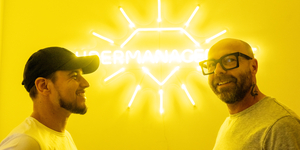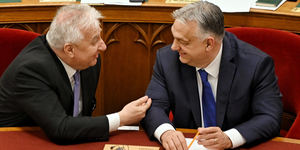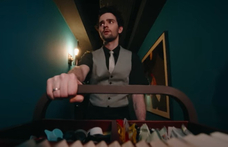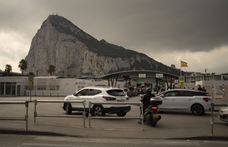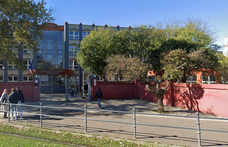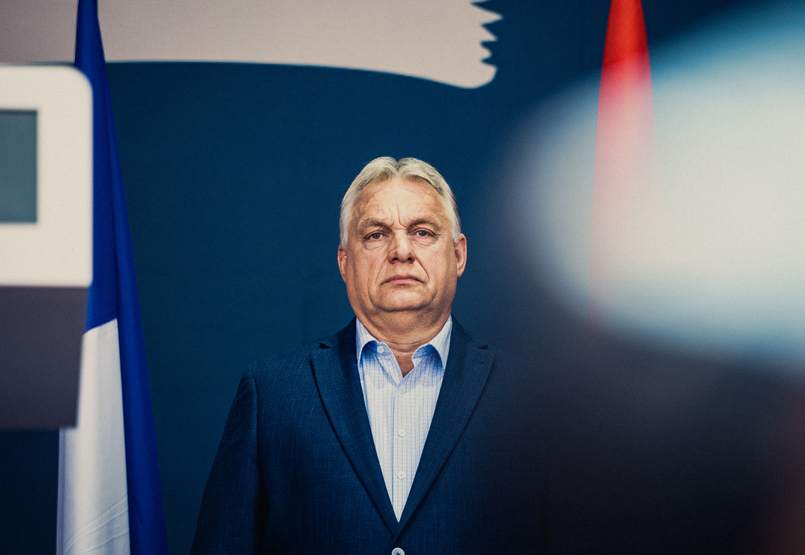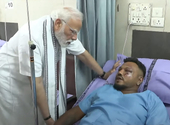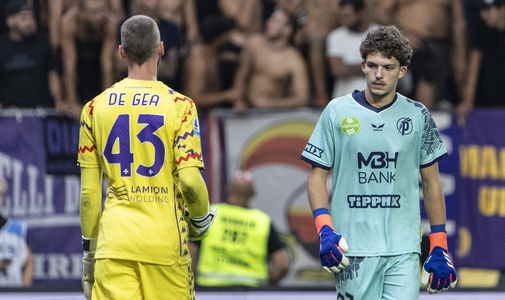"All my predecessors have been demonised."
We have no financial demands, but we need to see questions, Erika Steinbach, the 64-year-old head of the Association of German Deportees, told HVG. She was speaking in advance of a conference to be held in the Hungarian parliament this week.
The Berlin memorial to people deported after World War II will shortly be unveiled in Berlin. You have fought strongly for this project, which was particularly controversial in Poland. Why is it so important?
E.S.: After the war, 15m Germans were deported or forced to escape from eastern, central and south-eastern Europe. That means that even today every fourth German family is personally affected. It's part of German history, part of our identity. The memorial will be a symbolic expression of this, showing that the fate of those people matters to us. It's a source of consolation and also part of our historical memory.
Aren't you just opening the door to compensation payments – isn't the memorial just the first step towards demanding money? How do you feel, for example, about the so-called Prussian Property Agency, which campaigns openly for the restoration of property once left behind?
E.S.: Our foundation has clearly distanced itself from the Prussian Property Agency. It's true, nonetheless, that the deportations were violations of international law, and this remains true even if we accept that none of it can be undone today. There are countries that have addressed the issue – Hungary showed a good example by paying compensation. We expect gestures, and this has nothing to do with financial demands.
The Polish parties agreed on one thing before the elections: the deportees' association, and you in particular, were the embodiment of evil. Are Poles right to be worried that Germans are going to ask for everything back?
E.S.: All my predecessors were treated as some kind of a demon in Poland. Herbert Czaja was used to scare children like the sandman of the fairy tales. I am suffering the same fate, while I can see that they're not addressing the true aims of our foundation. But that's a Polish problem, I can't solve it. Maybe they need an enemy, so they'll call her Erika Steinbach. At the same time, in the areas where Germans once lived, who now return for visits, real personal contacts have developed – and the Kaczinsky twins never had a majority in those regions.
If you have no financial demands, why don't you say so more openly? Why don't you state in your declarations that claims for restitution are illegal? That would be a contribution to peace.
E.S.: We are an organisation representing victims, and that's a question for politics. The appropriations broke German law, and everyone has a right to bring suit in a democracy. And if there are people in Poland who live in their own houses and who worry that the Germans are coming to claim them back, then politics must recognise that fear and find a solution. As the Hungarian restitution process shows, this can be done.
The fate of the deportees and the question of those lost eastern regions is a favourite topic for far-right groups in Germany. How do you relate to far-right parties like the NPD, the DVU or the Republikaner?
E.S.: During the Cold War, we were closely linked to the CDU and CSU, since they addressed the deportees' concerns, while at the time of Willy Brandt's Ostpolitik, the Social Democrats considered our concerns a marginal problem. Extremist parties always gain from the fates of the wounded and the marginalised, but they could never put down roots in our circles. When they tried, we reacted swiftly. During my presidency, one of my deputies started relativising the number of victims at Auschwitz – and we got rid of him.
Once, the deportees attacked Willy Brandt harshly, saying his eastern policy amounted to acceptance of the Oder-Neisse line.
E.S.: The Oder-Neisse line only became a formal border under international law when the Bundestag voted to accept it after German reunification. Since then, every democrat, including our own organisation, has accepted it.
Haven't you tried to tell this story in Poland? That would reduce tensions.
E.S.: I've been to Poland, I've given lectures, I've talked about the debt Germany owes Poland. I've also said how I admire the Poles, whose country has been divided up three times, yet they still sing: "Poland is not yet lost." I reached out both hands in the interests of reconciliation, asking only that they try to understand the feelings of those who were deported from the lands of their birth. But they didn't listen. Warsaw turned its head. On the 60th anniversary of the Warsaw uprising, we held a commemoration here in Berlin. Ralph Giordano, a leading figure of the German intellectual left and Cardinal Karl Lehman both took part. But instead of accepting our sympathy, Poles were angry, asking what the German deportees had to do with this. And then you have to ask what more we can do? I'm not giving up all hope – there's still a chance for reconciliation. You know that Herbert Hupka, who represented the Silesian deportees, and who is also a bogeyman in Poland, was eventually made an honorary citizen of his former home city of Ratibor in Silesia. Who knows – maybe the city where I was born will do the same for me?
Have you been there?
E.S.: I've always wanted to, but I always postponed the trip. I was worried that a visit would provide ammunition for the extreme right there, who would say: "Look, Steinbach is coming." I was planning to go in the autumn, but then came the elections, and I was worried about handing the Kaczinskys a golden opportunity. We have to wait for the new government to be formed – and Donald Tusk has plenty to do.
Other nations were deported after World War II. You are the human rights spokesman for the Christian Democrats in the Bundestag. How should these questions be dealt with today?
E.S.: It wasn't just after World War II that there were deportations. Our foundation organised an exhibition last year showing all the sufferings that the 20th century had brought in this respect. In Europe alone, more than 30 peoples and groups were forced out of their homelands. It was a favoured political tool for getting rid of unfavoured minorities. And it's a complex issue, as is shown by the Czechoslovak, Hungarian and German examples. Hungary deported half of its Germans; the Poles drove out the Germans, while in eastern Poland, the Russians deported them. It's a vicious circle. It's particularly painful that Slovakia has once again reaffirmed the Benes decrees.
Every country does itself a favour if it confronts the ugly parts of its own history. Otherwise, the tensions remain – it's impossible to sympathise with others who suffered the same fate. I'm glad that people like Imre Kertesz and Gyorgy Konrad support the aims of our foundation.
BÉLA WEYER / BERLIN

